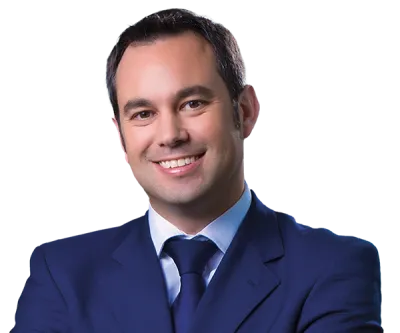
Power players: investment funds 2025 - distinguished advisers
In today’s increasingly unpredictable global environment, the outlook for investment funds and their managers – particularly in the US – remains uncertain. Recent tariff measures introduced by the US government, along with subsequent policy reversals, have unsettled international markets. These trade actions are expected to slow global economic growth in the near term by raising costs for businesses and consumers alike. This, in turn, could increase the risk of stagflation – a combination of sluggish growth and rising inflation.
An original version of this interview was first published by Financier Worldwide, May 2025.
While these developments pose significant challenges, they are not the only sources of concern for investors. The growing integration of artificial intelligence (AI) into fund management brings both opportunities and risks.
Against this backdrop, Financier Worldwide turns to Jarrod Farley, who leads the Carey Olsen Cayman Islands investment funds team, as well as heading the wider corporate group in the Cayman office. He has extensive experience of advising on the formation and ongoing legal and regulatory issues relating to Cayman investment funds and has served on a number of related industry boards in the Cayman Islands.
Could you describe your approach to tackling complex legal challenges? What principles or philosophies guide your work?
As an offshore corporate and funds lawyer, I am often asked to help brainstorm complex transaction structures during sessions with onshore lawyers and clients. I have found the key in these situations is to stay calm and work through the problem from first principles. While it is ultimately necessary to understand all the various regulatory and other issues that may come to bear, it is generally the more fundamental legal issues that will determine if a structure works or not. Where the answer is no, there are often alternatives available, some of which may require taking a step back even further to see what the client is trying to achieve to be able to work out all the options. My approach here has always been to explain to clients where particular options fall on the spectrum of risk so we can work out solutions based on their risk appetite.
Reflecting on your career, how have your goals and aspirations evolved over time? Have there been any unexpected achievements or shifts in direction?
Like most offshore lawyers, I started out on the standard onshore career track, training in a large London law firm and having a fairly blinkered view of my future. At that time, I believed that my success would be measured in how quickly I rose through that firm’s ranks to become partner. However, as I progressed and found it ever harder to achieve any balance between work and personal life, I questioned my priorities and decided to move to the Cayman Islands for a complete change. At the time, the jurisdiction was taking off as the home of alternative fund and structured finance vehicles, so I was able to continue my career progression to partner but also spend quality time with my growing family. My biggest shift came when I was offered the chance to help found a Cayman Islands office for Carey Olsen, which at the time was still only based in the Channel Islands. This was an entirely new and exciting challenge taking me well outside my comfort zone, which I discovered was really what I needed at the time.
How do you stay ahead in your field? Are there any emerging trends or innovations you are particularly excited about in your area of expertise?
After we founded Carey Olsen’s Cayman Islands office in 2012, there followed a decade of intense regulatory change driven by international forces outside our control, from FATCA and CRS, to data protection regulations, beneficial ownership registers and private fund regulation. I generally found myself leading the charge against this onslaught, trying to understand what each change meant for us and our clients and working out the practical and legal responses. Aside from being forced to adapt to all this imposed regulation, recent years have brought client-driven changes in the digital assets space, leading to an entirely new practice area that over time I feel is going to have an effect on almost everything we do.
Representative engagements
- Representing an emerging US private credit manager alongside US counsel on a $4bn fund launch in 2024.
- Advising a TASE-listed Israeli real estate manager on a £65m fund established with a joint venture partner to invest in UK real estate.
- Acting as lead counsel for a family office with $1bn assets under management and a global client base, on the establishment of a fund with multiple investment strategies structured as a segregated portfolio company.
- Acting for a US institutional fund manager on the establishment of an investment programme for one of its large US public pension fund clients. Each segregated portfolio company has a separate trading manager and portfolios that are separately managed accounts or intermingled with third-party investors so the pension fund can manage its exposure.
- Establishing a single investor fund for a decentralised autonomous organisation to manage its unreleased tokens held in treasury, which are worth several billion dollars.





